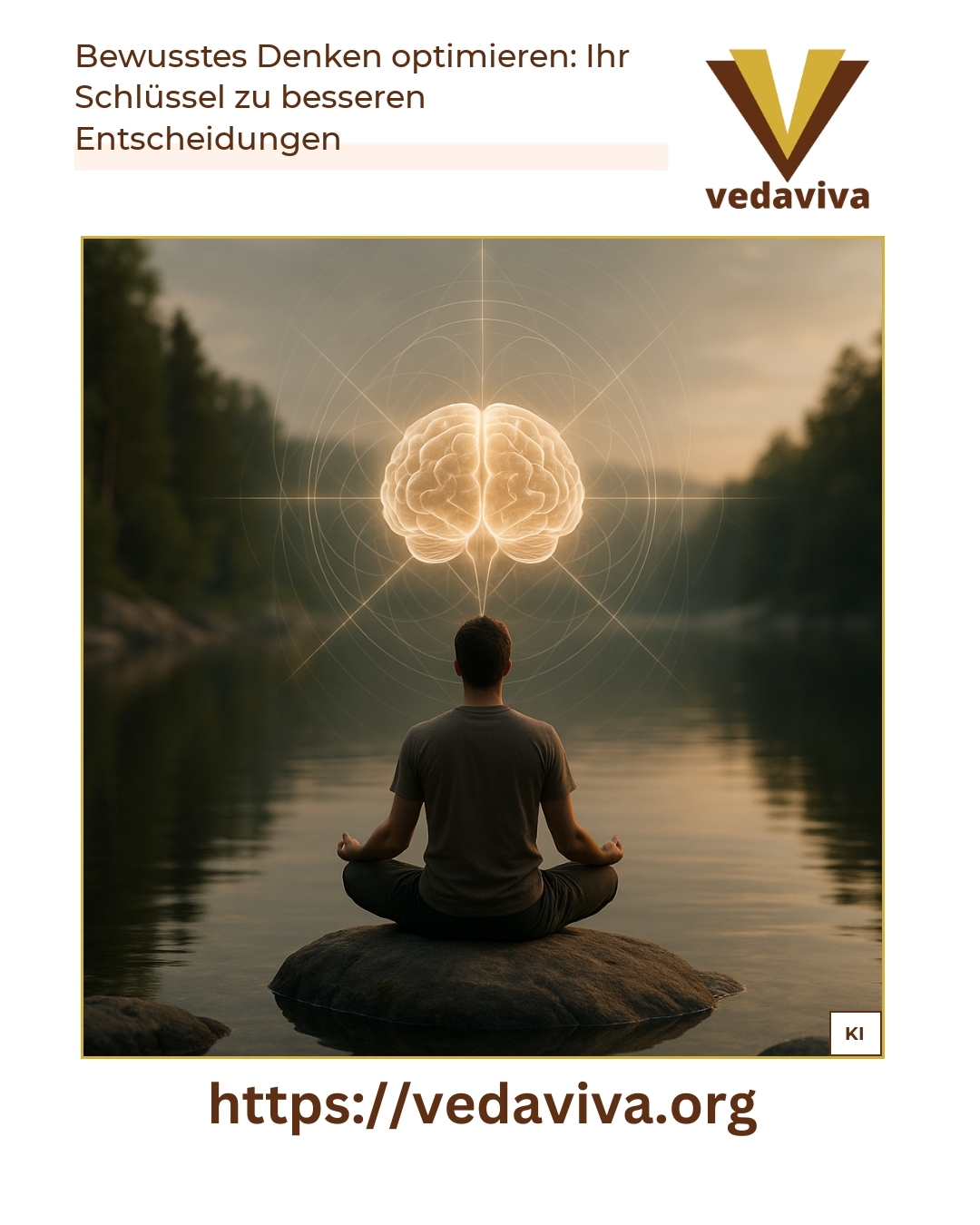Optimising conscious thinking - your key to better decisions
Optimising conscious thinking means actively directing the mind in order to deal with challenges more confidently and clearly. It helps to move away from impulsive reactions and instead take structured, well-considered steps. This skill is particularly important in professional contexts, as it helps managers and teams to assess complex situations more confidently and systematically weigh up different options.
Methods for optimising conscious thinking
A proven approach to optimising conscious thinking is to first formulate clear goals. If you know exactly what you want to achieve, you can recognise and prioritise more relevant information more quickly. In order to actively manage thoughts, it makes sense to separate facts from emotions. In everyday working life, many companies use structured workshops in which teams reveal their points of view. This creates the necessary freedom to think analytically and creatively at the same time.
Micro-learning units are also used. These short, targeted units divide complex topics into manageable sections. This prevents excessive demands and loss of concentration. This is supplemented by regular training in logical thinking, for example with the help of simulation games or puzzles. Deliberate breaks also allow the mind to regenerate and discover new perspectives. Targeted error analysis provides additional impetus to avoid thinking errors and learn from experience.
BEST PRACTICE at DEF (name changed due to NDA contract)
The company has integrated micro-learning phases combined with regular reflection sessions into the daily routine. This structure helps employees to tackle complex challenges more consciously. The result is fewer mistakes and a noticeable increase in focus when completing tasks.
Optimise conscious thinking: Improve decision-making processes
Essentially, conscious control of thought processes enables us to prioritise more clearly. The targeted collection and evaluation of facts forms the basis for realistically weighing up various alternative courses of action. Consciously reflecting on your own emotions and thought patterns helps you to recognise blind spots and distortions. This results in decisions that are not only logical, but also well thought out.
In practice, managers use this way of thinking to plan projects realistically despite high demands. The conscious separation of emotions and facts in meetings also promotes creative thinking and enables teams to work together with less stress. Optimising conscious thinking therefore also means approaching problems with a heightened sense of calm and finding new solutions.
BEST PRACTICE at ABC (name changed due to NDA contract)
A management team used conscious thinking to develop a feasible project schedule within a very limited time frame. By focusing on factual analyses and combined creative ideas, team stress was significantly reduced, which had a positive impact on product quality.
Optimise conscious thinking: Linking conscious and unconscious thinking
Successful decisions are based on a balance between conscious and unconscious thinking. While conscious thinking filters and prioritises information in a concentrated manner, unconscious thinking processes many factors simultaneously. It utilises experiences, patterns and intuition that the conscious mind cannot grasp in parallel.
When optimising conscious thinking, it is important to combine these two modes of thinking. On the one hand, you can carefully analyse rational facts, but on the other hand you can also integrate unconscious impulses as a valuable addition to the decision-making process. This combination often leads to better and more sustainable results.
BEST PRACTICE at DEF (name changed due to NDA contract)
A product team combined conscious data analyses with intuitive feedback from years of experience. This enabled a complex customer issue to be optimally resolved, as rational and intuitive insights went hand in hand.
Practical tips for daily use
Everyday techniques such as regular self-reflection, consciously setting priorities and taking targeted breaks help to optimise conscious thinking. A balanced diet and sufficient sleep also support cognitive performance. If you know and control your thought process, you can deal with stressful situations more calmly and promote innovation in a targeted manner.
In conversations and meetings, it's worth actively keeping facts and emotions separate. Sharing ideas with colleagues can also help to discover new perspectives. All of this contributes to continuously training conscious thinking and integrating it into everyday working life.
My analysis
Optimising conscious thinking is a valuable skill that sustainably increases the quality of decisions. It creates clarity, promotes creativity and enables a more realistic assessment of situations. Companies that structure their thought processes in a targeted manner often achieve improved results while reducing the burden on employees. The combination of conscious and unconscious thinking plays a key role here and opens up effective room for manoeuvre.
Further links from the text above:
Optimise conscious thinking: Key competence for better decisions [1]
Conscious thinking: how decision-makers make the best decisions [2]
Optimise conscious thinking: Top strategies for decision makers [4]
Conscious thinking: Your success factor for better decisions [5]
Legal notice: Coaching does not replace therapy. It serves personal development. I do not diagnose or promise a cure. My offer is for personal development and is not a substitute for medical, psychotherapeutic or curative treatment. Please consult a medically qualified specialist if you have any health complaints. The experiences described here are based on individual feedback from my clients. They are not a guarantee of success and do not replace medical or therapeutic counselling. For more information and if you have any questions, please contact Contact us on the topic or read further blog posts on the Topic here.













